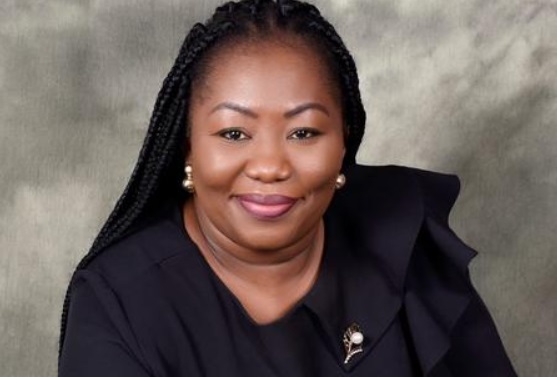Clara Kasser-Tee Decries Hypocrisy in Ghana”s Governance Advocacy
According to her, instead of holding themselves to the standards they once demanded, they defend the very actions they once condemned.
- Advertisement -
In a hard-hitting reflection on the state of Ghana’s political culture, Clara Kowlaga Kasser-Tee, a respected legal practitioner, has called out what she describes as the dangerous distortion of patriotism, neutralism, and partisanship in public life.
Writing under the title “The Dangerous Proposition: Of Neutralism, Patriotism and Partisanship,” the lecturer at the University of Ghana School of Law, bemoaned the troubling pattern among Ghana’s political actors and their supporters, where principles are often abandoned for expediency, and the genuine pursuit of good governance is replaced by partisan hypocrisy.
- Advertisement -
She identified three distinct but interconnected groups. Group A consists of individuals who, while in opposition, ardently advocate for good governance but quickly reverse their stance once they assume power.
- Advertisement -
According to her, instead of holding themselves to the standards they once demanded, they defend the very actions they once condemned.
Group B, according to her, comprises former office holders who, when wielding power, saw nothing wrong with abuses of that power, yet, once out of office, they rebrand themselves as champions of transparency, accountability, and governance reforms—often calling on others, particularly neutral actors, to be the vanguards of public scrutiny.
Group C, Kasser-Tee explained, represents those who conflate loyalty to a political party with blind defense of all its actions.
For them, patriotism is selective—wrongdoing is condemned only when committed by the opposing party, while misdeeds by their side are justified or conveniently ignored.
“One common thread that seems to run through the above is this: Neutrals are the ones who have a duty to be patriotic. They, even if they do not wield state power, are the ones to be scrutinized.
“They, even if they have their own jobs and lives, no matter how different, must be the ones to police public actions and speak out, (of course, only to get insulted largely).”
Entrenched Partisanship:
Meanwhile, the Vice Board Chairperson of the Ghana Centre for Democratic Development decried that partisanship has become so entrenched that party supporters are expected to rally uncritically behind their leaders, regardless of the consequences for the nation.
For her, the loyalty demanded is not to the Constitution, the democratic project, or even the public good, but to the transient fortunes of political parties.
- Advertisement -
Mrs. Kasser-Tee warned that such a dynamic not only undermines true patriotism but also corrodes the very foundation of accountable governance.
Advocacy for good governance, she stressed, must not be situational or transactional, asserting that it must be a consistent commitment, rooted in the belief that public service is a sacred trust and that governance must always serve the people rather than the personal interests of politicians and their allies.
She criticized the growing trend where many engage in governance discourse not because they are committed to building a better nation, but because they see opposition as a means to eventually benefit from the same system they criticize.
“So many support advocacy for good governance practices only when they are in opposition, not so that if they got the opportunity to be in government, they would do right by the people, but that they would be the beneficiaries.”
Her remarks are a reminder of the long-standing tensions in Ghana’s political development, where elections are fiercely contested, yet the fundamental ethos of good governance remains weakly upheld across political transitions.
It challenges citizens, politicians, and civil society to reflect on whether they truly uphold the values they espouse or merely use them as convenient tools for political gain.
Kasser-Tee’s statement also underscores the risks facing neutral voices in Ghana’s polarized political climate.
Without political machinery behind them, neutrals often face the wrath of both sides, criticized as either closet supporters of one camp or opportunists seeking relevance.
Yet, as she emphasized, it is precisely these neutrals who hold the key to preserving Ghana’s democratic integrity.
By standing above the fray and insisting on accountability, regardless of which party is in power, they fulfill a vital patriotic role that partisanship alone cannot sustain.
In concluding her powerful piece, Kasser-Tee called for a recommitment to genuine patriotism—one that transcends party loyalty and places the national interest above all else.
Only through such a renewal, she suggested, can Ghana hope to build a future where governance is truly about service, not self-enrichment, and where public trust is earned, not manipulated.
- Advertisement -


